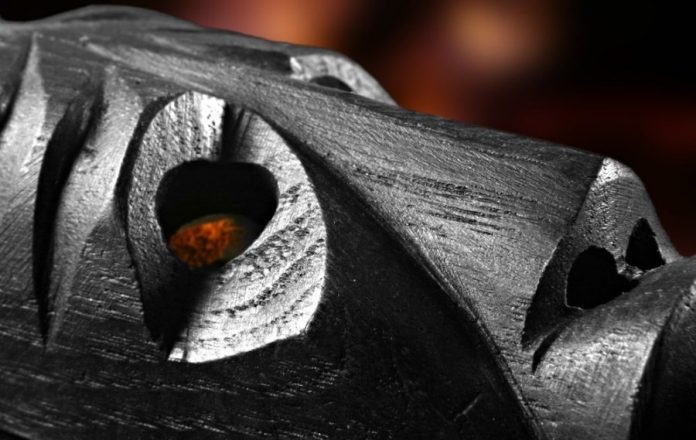Every day another unfortunate tragedy happens as a result of our current drug epidemic. Widespread use of drugs and alcohol has reached distressing proportions, and traditional methods of treatment aren’t solving the problem.
The Growing Drug Problem
Drug use in the U.S. has become so prevalent that the country has been pressed to declare a national state of emergency. According to national polls, roughly 90 people a day are currently dying from overdoses. This is a staggering statistic and, when you add that up for an entire year, the new figures take on even more weight. Many of us know and care for someone who is caught up in the drug epidemic, or we ourselves are victim. Addiction is a condition that does not discriminate. The face of addiction has grown to include everyone from the poor to the rich. It knows no boundaries. And those who become addicted struggle to break free. Drugs and alcohol are readily available, and heroin has taken a front seat to many of the other available substances. Many people blame the huge boom on narcotic prescriptions given out by doctors over the last decade. Now, many of those who cannot afford these medications, or have been cut off, seek illegal drugs, like heroin, in order to continue using.And these street drugs are much worse. They are unregulated which means a much higher potential for overdose. This has led many addicts searching for solutions, outside of traditional rehab centers, that work. Alternative treatments, like Ibogaine, are gaining ground for their ability to target addiction in the physical and psychological brain.What is Ibogaine?
Ibogaine is one the most powerful naturally occurring psychedelics on the planet. It’s derived from the Tabernanthe Iboga shrub that grows wild throughout Africa, and has been recognized for its unique properties for thousands of years. The pygmies were the first to use the Iboga shrub as a means to broaden their spiritual connections and to heal themselves on several different levels. They passed this knowledge on to the next generation, and the use of Iboga became commonplace among many West African tribes. The Bwiti religion—or first people—built much of their belief systems around the effects of Iboga. They use it in their religious rituals, rites of passage and in their healing practices. But Iboga didn’t make its way across the ocean until the 19th century, when traders and scientists brought it to France.The History of Ibogaine in the Western World
Once it was introduced in France, Ibogaine became popular as a stimulant when used in small doses. In 1901, two French scientists learned how to isolate the Ibogaine alkaloid and marketed the drug under the name Lambarene until the 1960’s. It was used primarily by athletes who needed a way to improve their performance. But, as the psychedelic revolution of the 60’s took hold, more and more people began using Ibogaine for its deeply introspective properties. In 1962, a man named Howard Lotsof tried Ibogaine for the first time—hoping to get the intense psychedelic effect. Lotsof was a massive heroin addict at the time. He discovered that Ibogaine eliminated his withdrawal symptoms, and freed him of his addiction to heroin. He spread the news to other addicts, and discovered that they had similar experiences. Lotsof spent the rest of his life researching Ibogaine’s effects on addiction. Unfortunately, in 1967 the US classified Ibogaine as a Schedule I drug—outlawing it and making it difficult to research. This led to the growing number of Ibogaine treatment centers that we see today.Lotsof moved his research to Amsterdam where he studied Ibogaine and founded GITA until he died in 2010.Ibogaine’s Relationship to Addiction
Ibogaine works in two different ways to treat addiction. The first is on the physical withdrawal symptoms, where Ibogaine has been shown to reduce withdrawals significantly. And the second is the psychological addiction, where trauma and negative life experiences often keep an addict using in order to self-medicate from these underlying issues.The Physical Impact of Ibogaine
Ibogaine has the ability to essentially reset the chemical pathways in the brain. When someone experiences withdrawals, it is because the brain and body are readjusting to normal chemical levels that have been disrupted by intense drug use. Heroin and opiates are particularly potent, and have the most severe withdrawal symptoms when compared to other drugs. When the levels of the drug begin to fall, the brain sends out distress signals that lead to serious physical withdrawal symptoms. Ibogaine has been proven to reset these chemical pathways, and to help heal the brain back to its normal level of function. This eliminates many of the withdrawals, and allows the addict to fully focus on the psychological side of their problem. This healing and normalization process can take the brain months to do on its own, and Ibogaine is able to do it in a matter of hours.The Psychological Impact of Ibogaine
Ibogaine has the ability to create a deeply spiritual and introspective psychedelic experience. Even though not all addicts will go through this psychedelic phase, the majority do. Many addicts claim this experience gave them a safe and objective look through their entire life. During this experience, Ibogaine allows addicts to finally confront some of the more traumatic events that may have led up to their dependence on drugs and alcohol. Many addicts use in order to numb the pain from past experiences and trauma that caused them serious emotional or physical harm. They lack the coping skills, or haven’t been able to find the appropriate platform to deal with these things head on. The experience with Ibogaine gives them this platform, and helps many to start healing from the inside out—helping them face and deal with this trauma in a more positive way. This allows addicts to heal and move on.Is Ibogaine Safe for Me?
Ibogaine carries many of the same risks as other forms of medical treatment. It’s important to make sure that you only undergo Ibogaine treatment in a controlled environment, and under the supervision of trained and licensed medical professionals. The doctor or medical personnel at an Ibogaine clinic may require that the addict to undergo a series of tests to make sure that they’re healthy enough to proceed. Proper precautions must always be taken to limit the negative outcomes from using Ibogaine.Is This a Treatment Option for You?
There are many different approaches to addiction, and each and every person owes it to themselves to discover a treatment that works for them. Ibogaine isn’t necessarily for everyone, but it can help many addicts, especially those who have tried traditional methods without success. Just remember: there is hope, you are worth it, and you can overcome addiction with the right treatment. Don’t allow drugs and alcohol to cheat you out of the future that you deserve. Find what works for you, and start right now.Aeden Smith-Ahearn is a former heroin addict who put his last hope into Ibogaine treatment for his addiction. After Ibogaine, Aeden dedicated himself to helping other addicts find sobriety through Ibogaine. Now, five years later, Aeden has helped thousands of addicts get clean from drugs and alcohol through Ibogaine.

